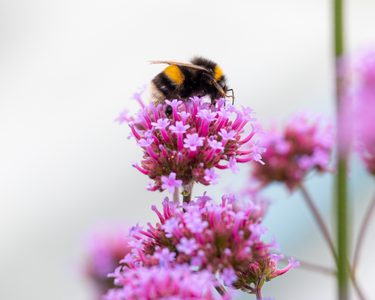Neonics - two new field studies show disastrous effects on bees

One looked at honey bees in Canada, and reveals a marked increase in worker and queen mortality. The other studied different types of bees (honey, bumble and mason bees) across the UK, Germany and Hungary, and revealed that exposure to the treated crops reduced overwintering success of honeybee colonies - in Hungary, nearly a quarter of the bee colonies didn't survive. In the UK, honeybee colony survival was generally very low, but lowest where bees fed on clothianidin-treated oilseed rape in the previous year. Equally worrying was the lower reproductive success in queen numbers (bumblebees) and egg production (red mason bee) across all three countries.
This study, led by CEH, is the first of its kind to be so extensive, across different countries and looking at different types of bees. According to the lead author, Dr Ben Woodcock, "The neonicotinoids investigated caused a reduced capacity for all three bee species to establish new populations in the following year, at least in the UK and Hungary." Interestingly, there were no harmful effects on overwintering honeybees found in Germany. German hives happened to be larger, showed little evidence of disease and had access to a wider range of wild flowers to feed on. Dr Woodcock suggests that this may explain why in this country alone there was no evidence of a negative effect of neonicotinoids. It appears our UK honeybees are already tending to be more diseased, and therefore less resilient.
Prof David Goulson, bee specialist and Professor of Biology at the University of Sussex, said:
"This is by far the largest field trial ever conducted on the impacts of neonicotinoids on bees, including honeybees, bumblebees and solitary bees. Exposure of bees was entirely field-realistic; indeed, farmers simply followed normal farming practice.
The findings are in agreement with a number of earlier studies; field exposure to neonicotinoids has clear negative impacts on bumblebees and solitary bees .... continuing to claim that use of neonicotinoids in farming does not harm bees is no longer a tenable position".
Interestingly, analysis of residues of neonicotinoids in bee nests revealed the presence of imidacloprid - a neonicotinoid which has been banned since 2013 and was not used on the farms in the year of the study. Not only does reveal a persistence of neonics in the soil, but potentially a contamination of the surrounding wildflowers." And in the Canadian study, the acute toxicity of neonicotinoids to honey bees doubles in the presence of a commonly encountered fungicide.
"Both these field studies call for a renewed look at the regulation of pesticides," comments James Campbell, Garden Organic Chief Executive. "Organic growers need no further proof of the dangers of toxic chemicals, whether they are used in fields or gardens. We will continue to campaign to get them banned."
See here for further information on neonics.